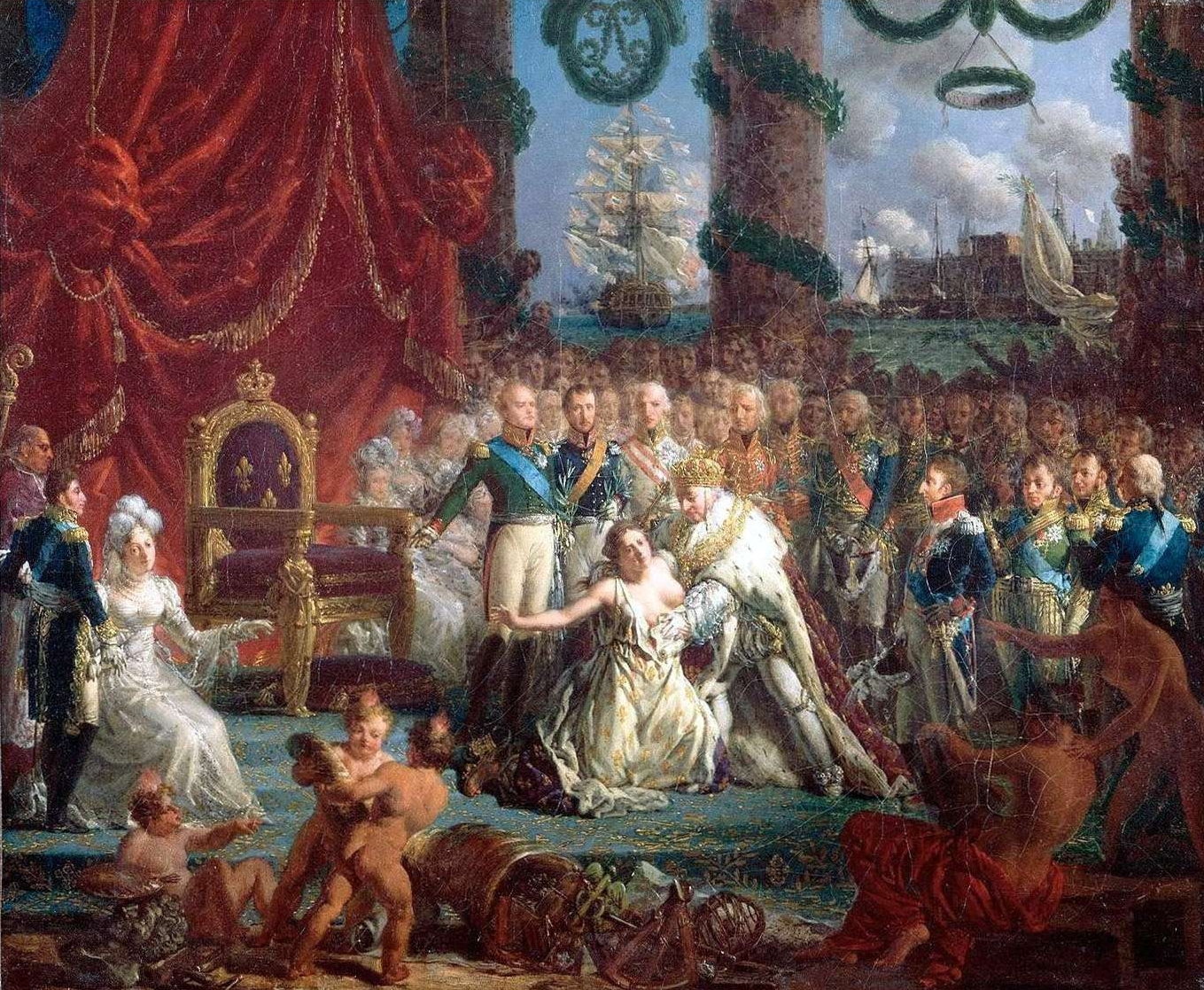In 1610 the capable and popular Henry IV was assassinated in the prime of his career by a madman who was believed at the time to be working for the Jesuits—a charge for which there is no proof. The new king, Louis XIII (r. 1610-1643), was nine years old; the queen mother, Marie de Medici, served as regent but showed little political skill. Her Italian favorites and French nobles, Catholic and Huguenot alike, carried on a hectic competition that threatened to undo all that Henry IV had accomplished.
During these troubles the French representative body, the Estates General, met in 1614 for what was destined to be its last session until 1789. Significantly, the meeting was paralyzed by tensions between the noble deputies of the second estate and the bourgeois of the third. Meanwhile, Louis XIII, though barely into his teens, tried to assert his personal authority and reduce the role of his mother. Poorly educated, sickly, masochistic, and subject to depression, Louis needed expert help.

